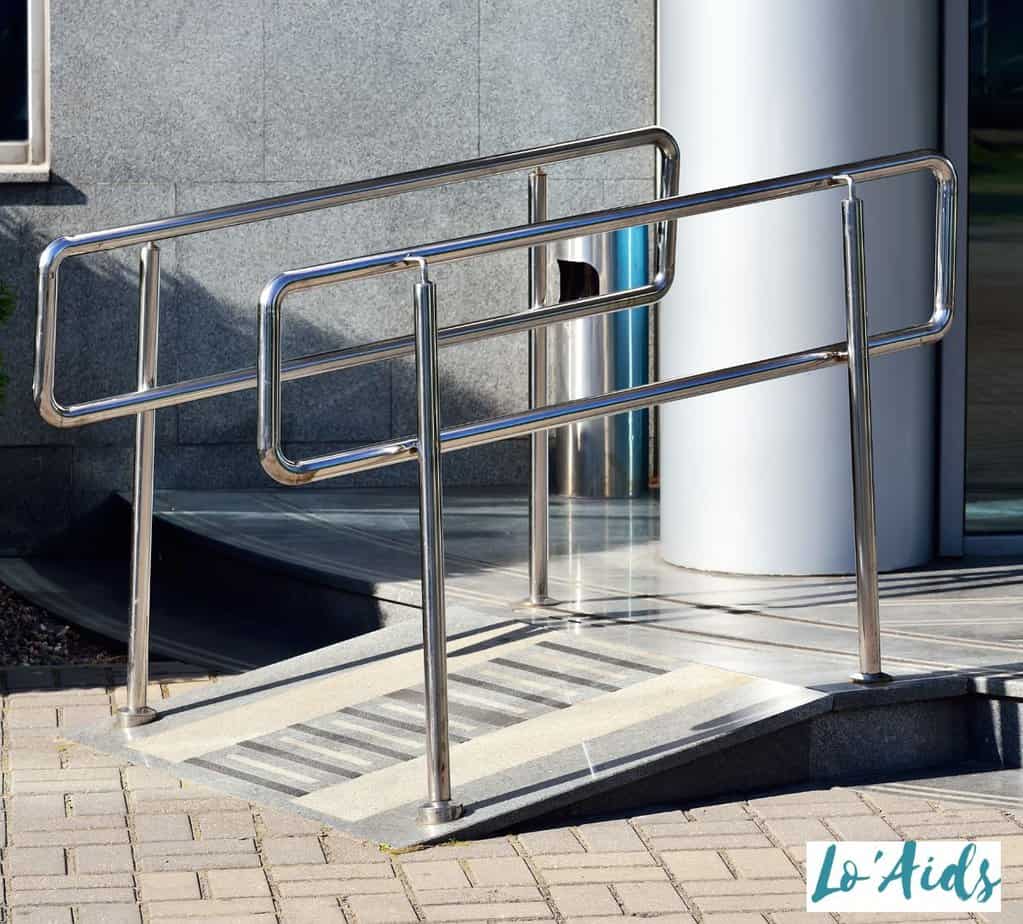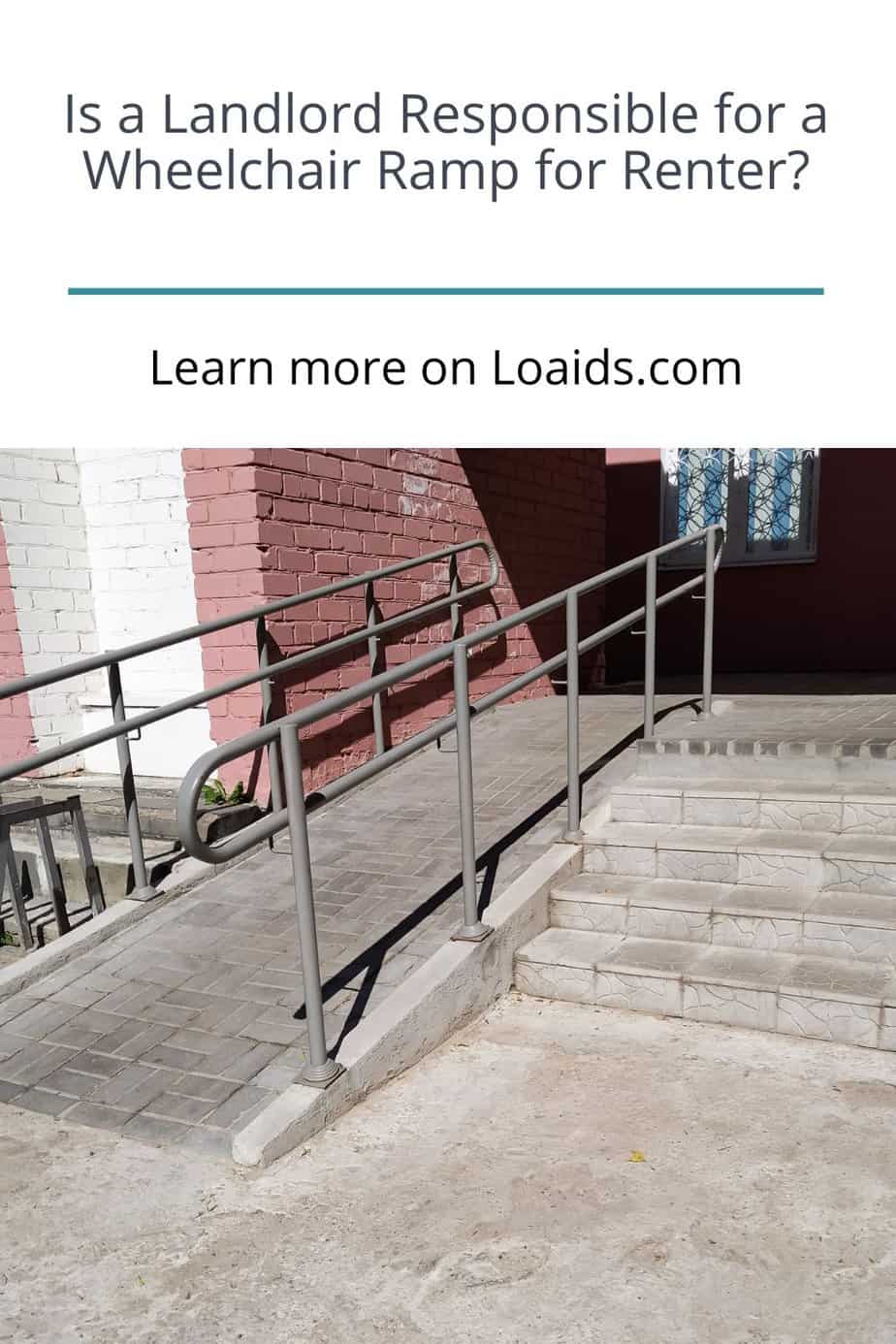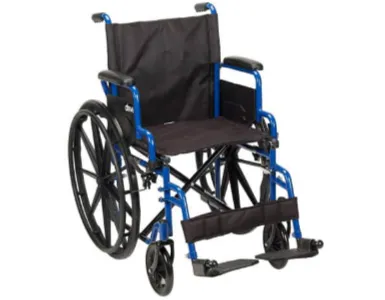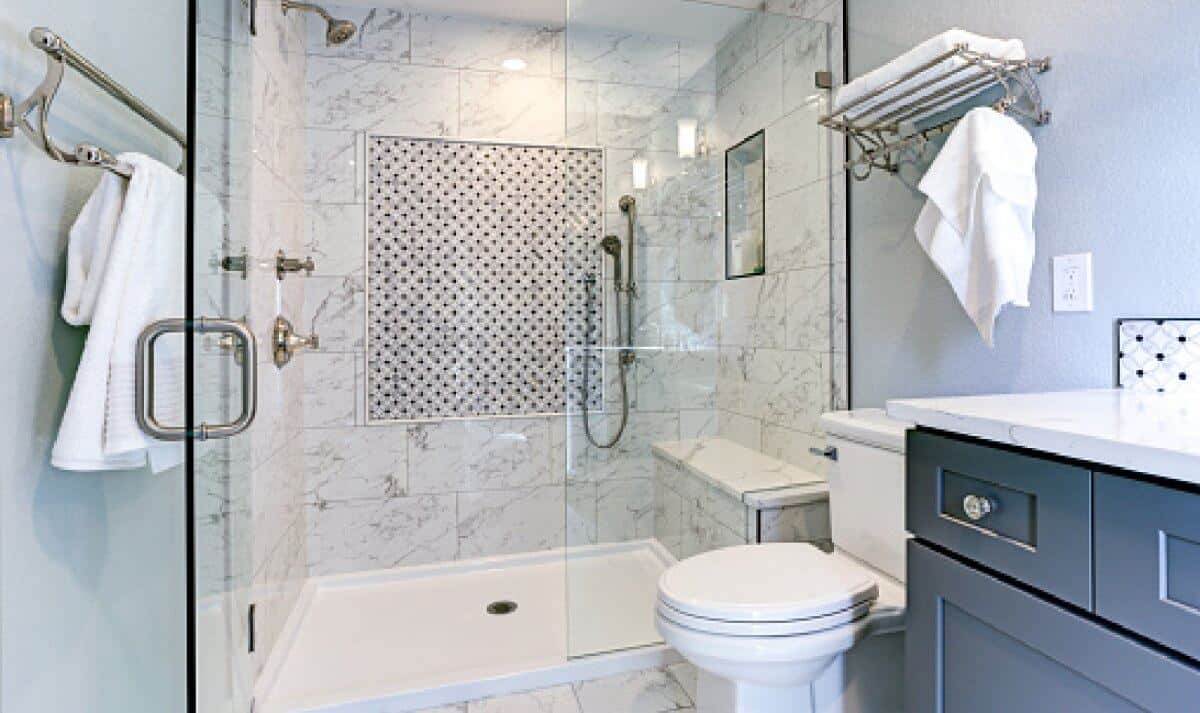Is a landlord responsible for a wheelchair ramp? Should the landlord build you a ramp if you’ve moved to a new house without one?
The short answer to that is NO. According to the United States Fair Housing Act, a landlord should allow reasonable modifications for tenants with disabilities (1).
However, it doesn’t make building disability structures the landlord’s responsibility.
While landlords aren’t obligated to build you a wheelchair ramp, they should allow you to build one yourself if you wish.
Let’s look further into the responsibilities of a landlord to tenants with disabilities.
Table of Contents
Key Takeaways
- A landlord isn’t responsible for wheelchair ramps. Landlords are, however, supposed to allow reasonable accommodations and modifications for a disabled person.
- A commercial landlord should grant your request for accommodation, provided it’s reasonable.
- A disabled individual should offer proof of their disability to a landlord when seeking reasonable accommodation.
Is a Landlord Responsible for Building a Wheelchair Ramp for Disabled Tenants?
A landlord isn’t liable for the costs of installing a wheelchair ramp. If you have mobility issues and need a ramp, you’ll need to fund its building yourself.

The landlord can only allow reasonable accommodations that make it easy for people with disabilities to live in and access a dwelling unit.
Reasonable accommodation doesn’t apply to rental units alone.
The accommodations modify any policy, service, or program, making it easy for a disabled person to enjoy public spaces, a residential unit, and other common-use areas.
The reasonable accommodations may also allow renters with disabilities to build ramps or other structural modifications (2).
So, if you need to make any reasonable modifications, request this from your landlord (3). They should grant the requests, especially if they are reasonable requests.
What they won’t do is fund the modifications you need. It isn’t a legal requirement for a landlord to provide such on their rental property.
That isn’t so bad since some agencies can help pay for disability-related accommodations (2).
Related: The Best Wheelchair Ramp for Home Entry
What If a Landlord Refuses to Allow Reasonable Accommodations?
Fair Housing Laws criminalize the discrimination of a tenant based on disability.
If a housing provider refuses to allow modifications after a reasonable request, they should provide an alternative.
If the building owner doesn’t offer an option and refuses your reasonable request, you’re free to seek legal recourse, as lawyer Joseph Grant explains in this video:
Refusing your request and flouting building policies is considered an undue hardship.
The best recourse here is to file a disability discrimination complaint with the local fair housing agency (4).
If this doesn’t work, you can seek legal advice from your lawyer and see how to proceed.
What Are Some Examples of Reasonable Modifications or Accommodations?
Besides ramps, persons with disabilities also need other modifications to ensure they enjoy living in a specific building.
Here are the most common reasonable modifications property owners should allow:
- Lowered closet rods
- Grab bars for bathrooms and toilets
- Widened doorways to make an apartment wheelchair accessible
- Accessible door handles
- A lift for the communal pool
Where the property owner allows for a modification, the tenant must ensure they restore the property to its original condition when moving out.
However, you can’t restore all things to their original condition. Wide doorways or permanent wheelchair ramps can stay.
You’ll have to remove grab bars, lowered closet rods, countertops, and other temporary disability modifications.
CHECK: Do I Need a Permit to Build a Wheelchair Ramp?
Common Accommodations
A landlord should allow any of the below accommodations:
- Allowing for emotional support animals
- An accessible mailbox location
- Allowing live-in aides for disabled people
- Assigning a more accessible parking space for people with mobility disabilities
Remember that for a landlord to accept any of the above requests, you need to prove you’re disabled.
The landlords can ask for proof, but they need you to explain the nature of the disability. Such requests should also make sense.
For instance, you can request a lift in an old building that only goes up to the 3rd floor.
FAQS
Is building ramps the landlord’s responsibility?

No, it isn’t the landlord’s responsibility to build you a wheelchair ramp. The landlord should allow the building, but the costs fall on the tenant.
Can a landlord evict a disabled tenant?
The Fair Housing law criminalizes any act of discrimination towards a disabled tenant. So, a landlord can’t evict a tenant just because they are disabled.
Must all requests for a reasonable accommodation be in writing?
Although it’s a good practice to have everything in writing, requests for reasonable accommodations don’t need to be in writing.
Conclusion
Is a landlord responsible for a wheelchair ramp? No, they aren’t. But they should allow building one if you need it.
The Fair House law demands commercial property owners make accommodations for disabled renters.
If a landlord doesn’t want to guarantee your enjoyment of property as a disabled person, they infringe on your housing rights.
Seek legal advice from your lawyer or the local fair house agency whenever that happens.

Have questions regarding a landlord’s responsibilities to a disabled tenant? Shoot them at us down in the comments, and we’ll answer them immediately.
Resources
- 1. The Fair Housing Act [Internet]. The United States Department of Justice. 2015. Available from: https://www.justice.gov/crt/fair-housing-act-1#:~:text=The%20Fair%20Housing%20Act%20prohibits%20discrimination%20on%20the%20basis%20of
- 2. Disabled Renter Needs a Ramp [Internet]. Los Angeles Times. 2001. Available from: https://www.latimes.com/archives/la-xpm-2001-sep-02-re-41190-story.html
- 3. Guide to Reasonable Accommodation in Housing Under the Fair Housing Act – Intermountain Fair Housing Council [Internet]. Intermountain Fair Housing Council. Available from: https://ifhcidaho.org/resources/guide-to-reasonable-accommodation-in-housing-under-the-fair-housing-act/
- 4. Disability Laws [Internet]. Tenants Union of Washington State. Available from: https://tenantsunion.org/rights/disability-laws#:~:text=They%20require%20landlords%20to%20make





